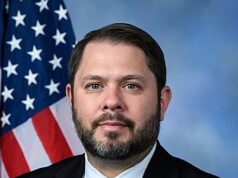House Financial Services Committee Examines HUD Outcomes Over the Department’s 50 Year History
WASHINGTON, D.C. – October 30, 2015 – (RealEstateRama) — On October 22, the House Financial Services Committee held a hearing entitled, “The Future of Housing in America: 50 Years of HUD and its Impact on Federal Housing Policy” to review the effectiveness of HUD programs since the Department was established half a century ago.
Chairman Jeb Hensarling (R-TX) said in his opening statement that though HUD has had notable achievements in the past 50 years, poverty is still endemic in America. He contended that HUD needs not only to provide housing, but to empower recipients to pursue happiness and proposed that new metrics must be established to determine progress, the regulatory burden accompanying HUD programs must be eased, and educational opportunity must be provided to program recipients to empower them to escape intergenerational poverty.
In her opening statement, Ranking Member Maxine Waters (D-CA) spoke to the effectiveness of the HOME program, saying that it contributes 1.2 million affordable housing units, including almost 500,000 units for first-time homebuyers. She also stated that HUD played a key role in reducing the number of homeless veterans across America by 33 percent and has provided housing assistance to 35 million families in the last 20 years alone. She praised the Neighborhood Stabilization Program in particular, which has infused $7 billion into local communities over the life of the program. Waters spoke to the need for a fully funded HUD, which could more effectively utilize the programs it has in place to address the continued need for affordable housing.
Housing and Insurance Subcommittee Chairman Blaine Luetkemeyer (R-MO) expressed frustration with the continued demand for housing assistance despite the large amount of funding Congress has appropriated to HUD programs since the department’s establishment. He argued that excessive regulation in HUD programs is a disincentive for private sector involvement and said his bill, H.R. 3700, seeks to ease the regulatory burden and increase private sector participation.
Testifying before the Committee, Renee Glover, Founder and Managing Member for The Catalyst Group, LLC, stated that over the past 50 years, HUD has learned through experience that decentralizing poverty should be a policy goal and has developed programs such as Hope VI and Promise Zones to achieve this objective. She maintained that Section 8, when used appropriately, can provide access to high-opportunity neighborhoods, improving outcomes for program recipients, and contended that it is important to build on this experience to design programs that adhere to the objective of decentralizing poverty.
Howard Husock, Vice President of Research and Publications at the Manhattan Institute, argued that many HUD programs result in long term dependence on government assistance by low-income households. Husock stated that percentage-of-income-based rent-setting effectively de-incentivizes earning additional income. He told the Committee that the Moving to Work program provides flexibility to encourage upward mobility and creates tangible results in work participation and wage growth for program recipients.
Xavier Briggs, Vice President of Economic Opportunity and Assets at The Ford Foundation, said that many of the variables that affect affordable housing supply are outside the purview of HUD. He testified to the efficacy of the tax code to encourage affordable housing production through the Low Income Housing Tax Credit while simultaneously encouraging wage-seeking through the Earned Income Tax Credit, but he also noted the tax code disproportionately benefits middle-income and affluent homeowners through the mortgage interest deduction. He stated that additional funding for HUD programs is required to maintain the same level of service due to increasing rents and development costs, which are due to market forces beyond the control of HUD.
Orlando Cabrera, Counsel at Squire Patton Boggs and former executive director of the Florida Housing Finance Corporation, testified that there is a need to develop new metrics to better measure the success of HUD programs. These new metrics will require improved data systems at HUD to replace aging technology.
The entire panel supported Hensarling’s proposal that HUD expand the Moving to Work program and similar efforts to encourage program recipients to achieve independence from HUD programs. Husock reiterated the importance of a fixed rent, or a rent that increases with income bands to encourage wage growth in affordable housing tenants.
Waters received affirmative responses from the panelists when she asked them if HUD was important in creating credible improvement to housing opportunities through the past 50 years. Waters also asked the panel what percentage of public housing tenants are capable of working. Briggs stated that the majority of public housing tenants are seniors or persons with disabilities. Cabrera emphasized that employment should not be a precondition for receiving housing assistance. He said Congress should establish as a new HUD objective the goal of empowering tenants to seek greater educational attainment and job opportunity.
At the end of the hearing, Representative Bruce Poliquin (R-ME) told the panelists that he had previously served on the board of a public housing agency in Maine and noted his concern about the high cost of building new affordable housing, which he claimed could be as much as $300,000 per one-bedroom unit in Maine, while single-family homes sell for far less. Poliquin said Maine then instituted practices to encourage developers to reduce costs. Cabrera responded that asset management techniques are helping to keep costs down and noted that while the cost of building a unit might be $300,000 or more in some places, it is often considerably less and projects are held to lengthy affordability periods.
Hensarling concluded the hearing without a timeline for additional hearings or markups.













